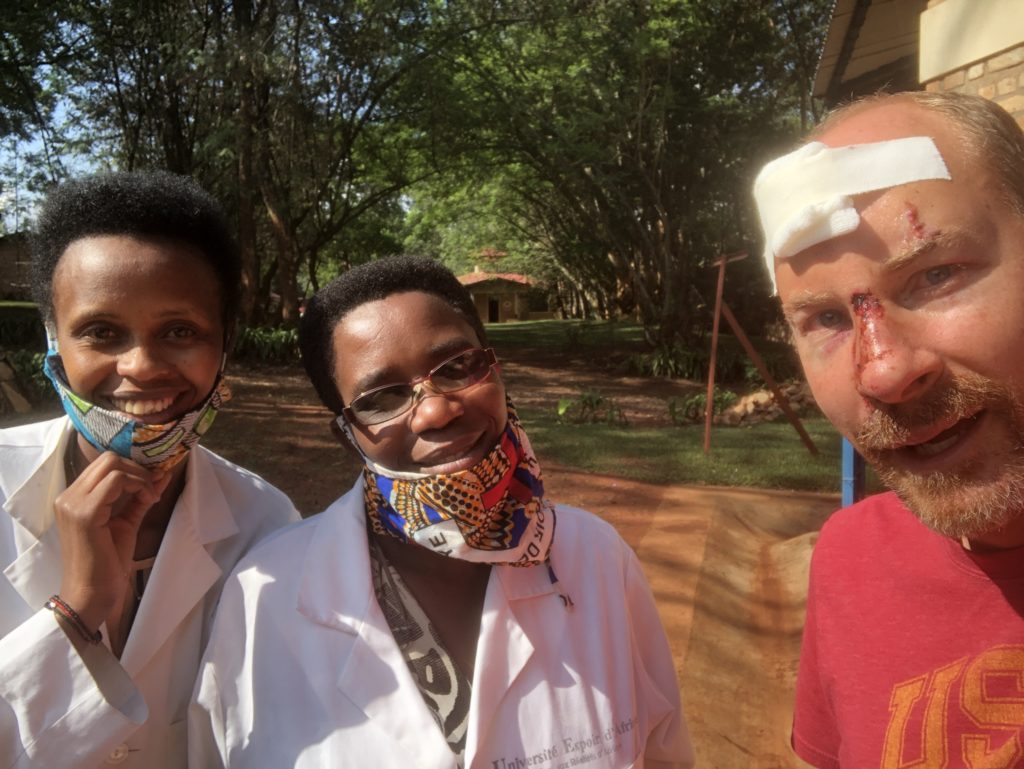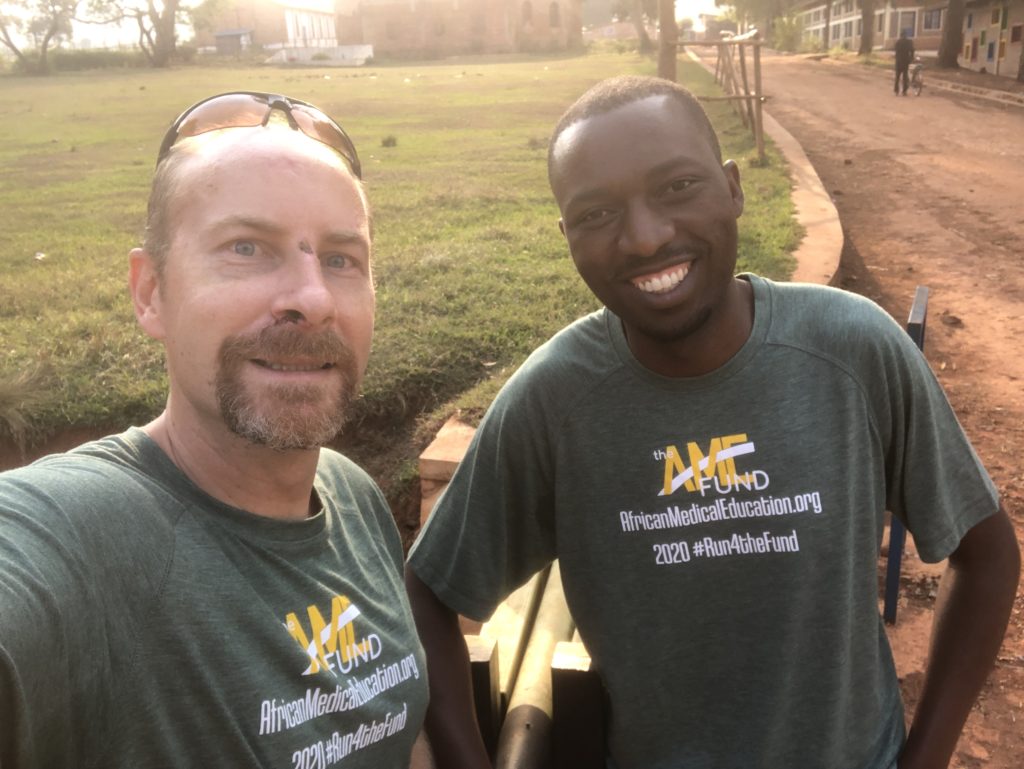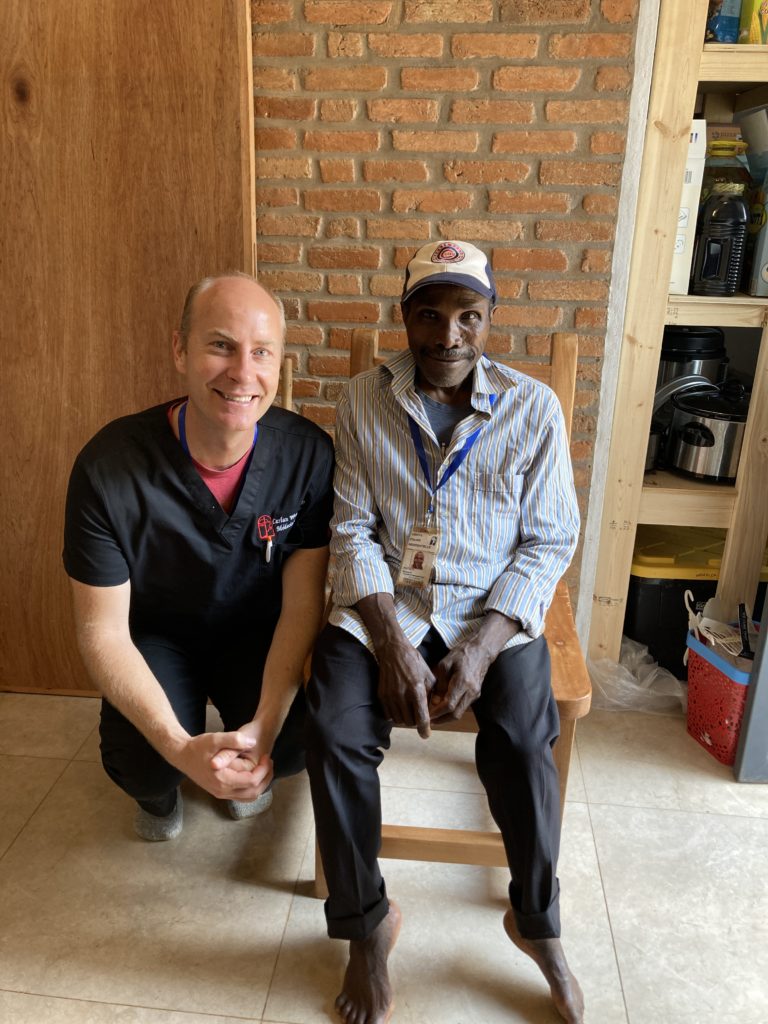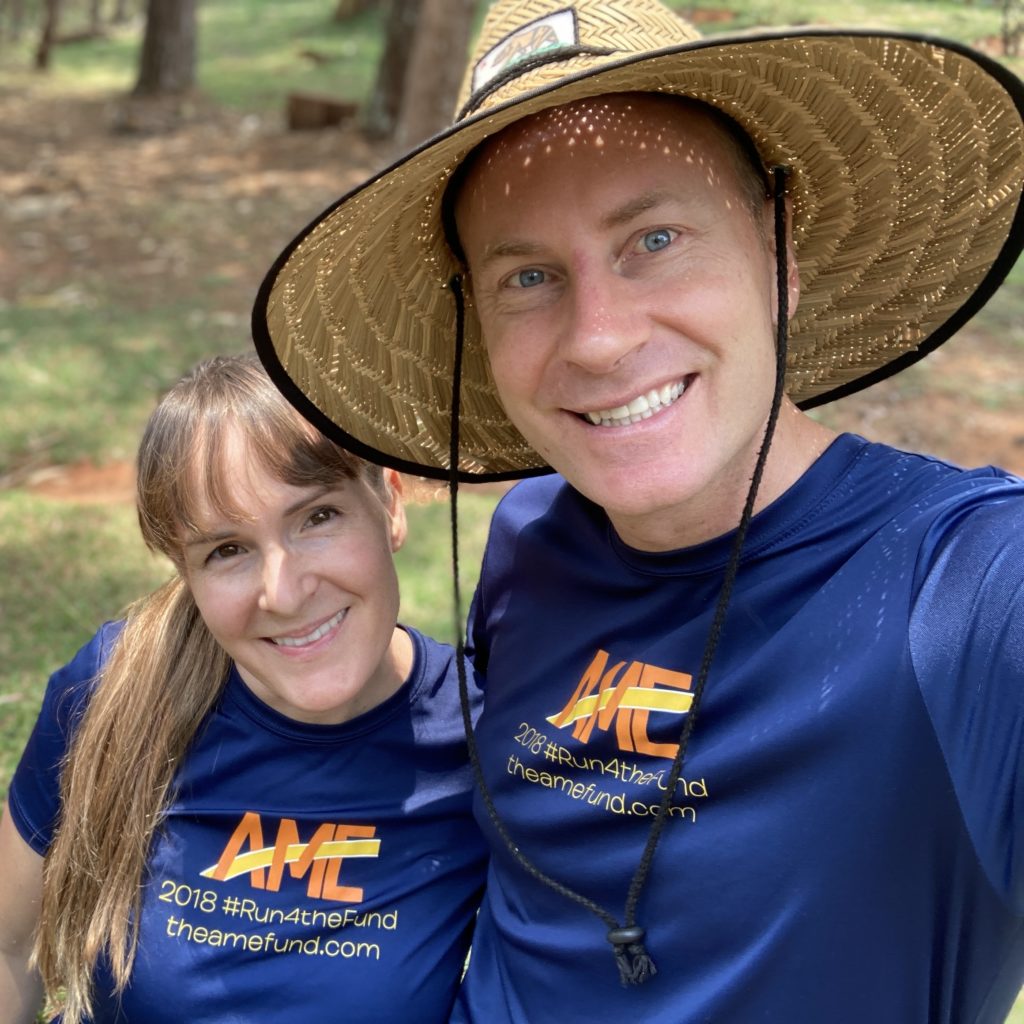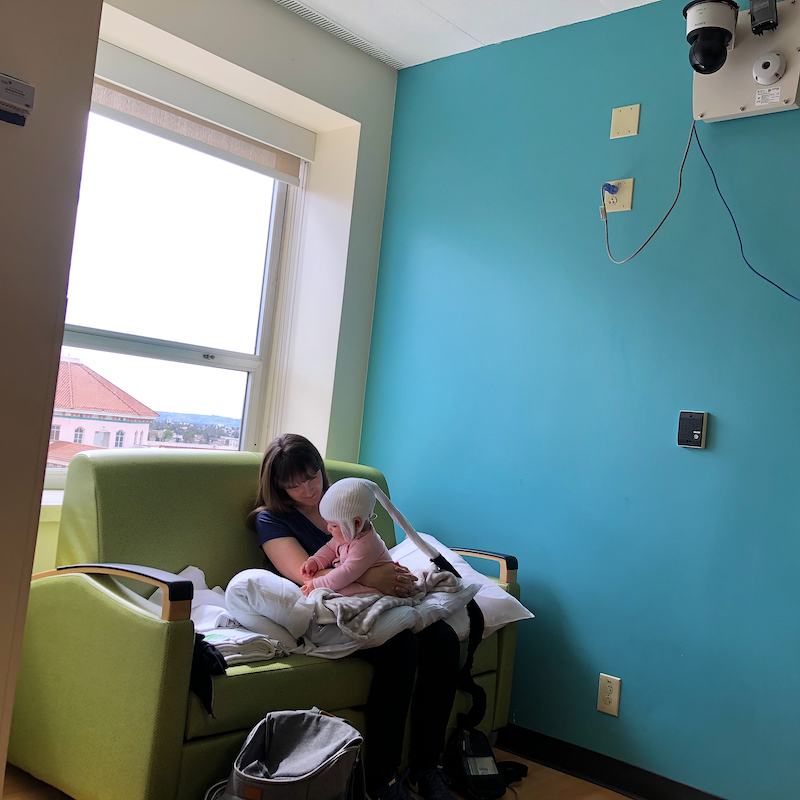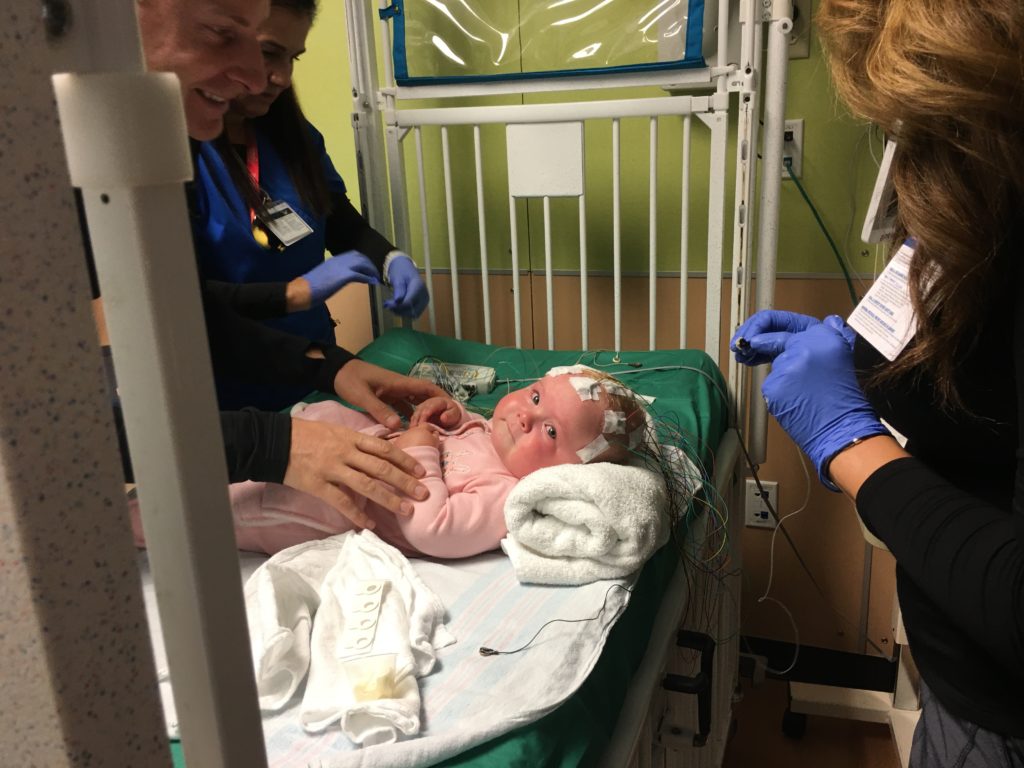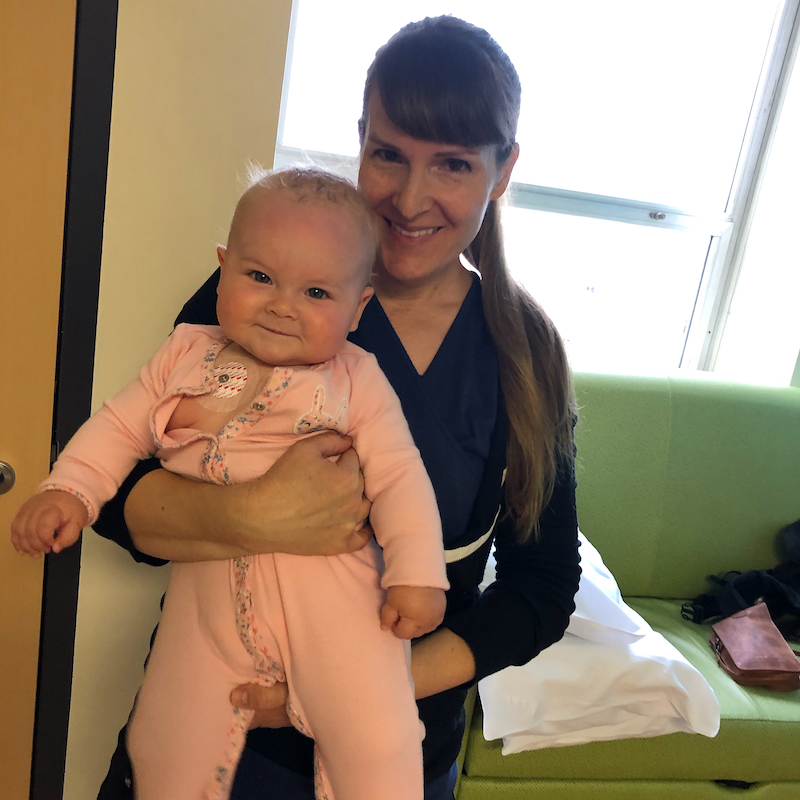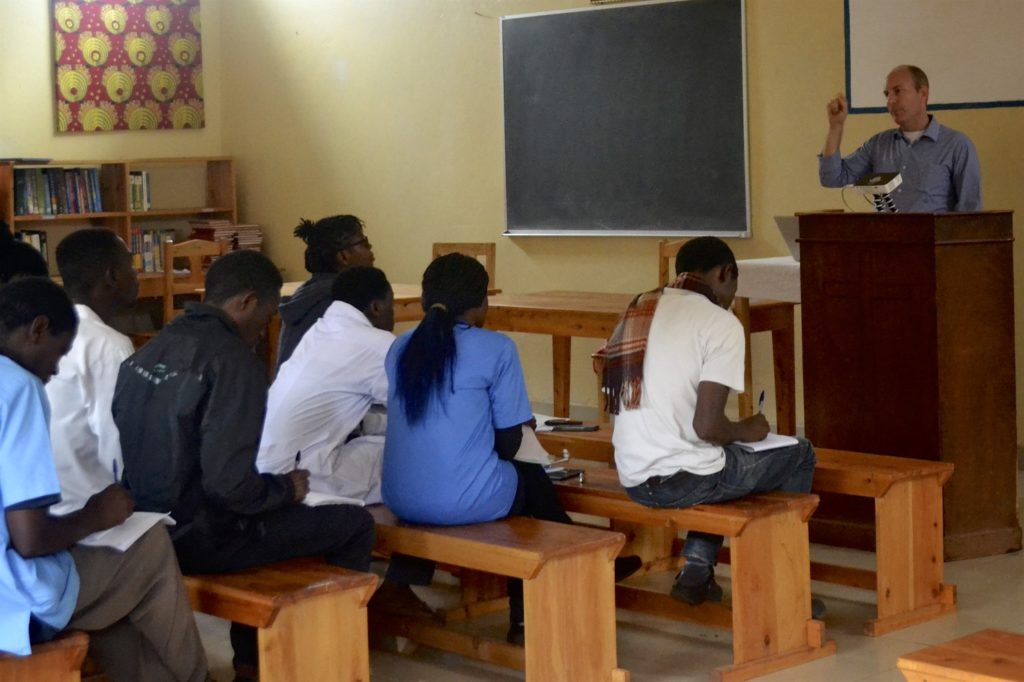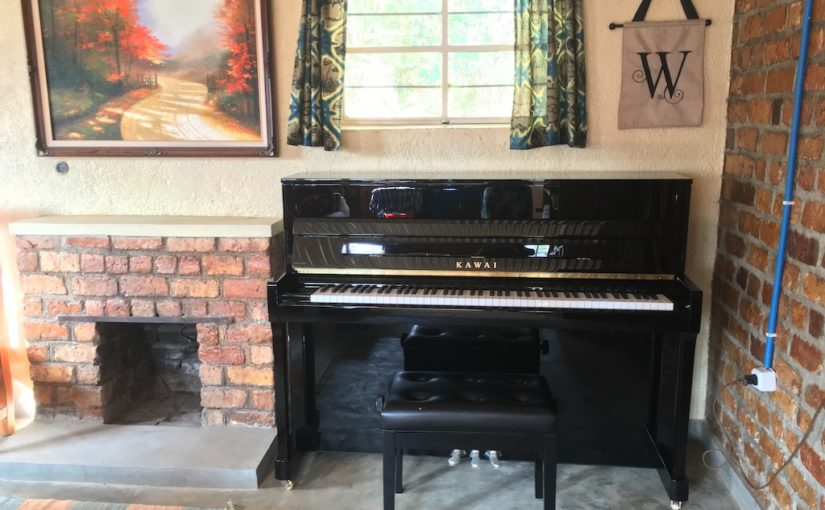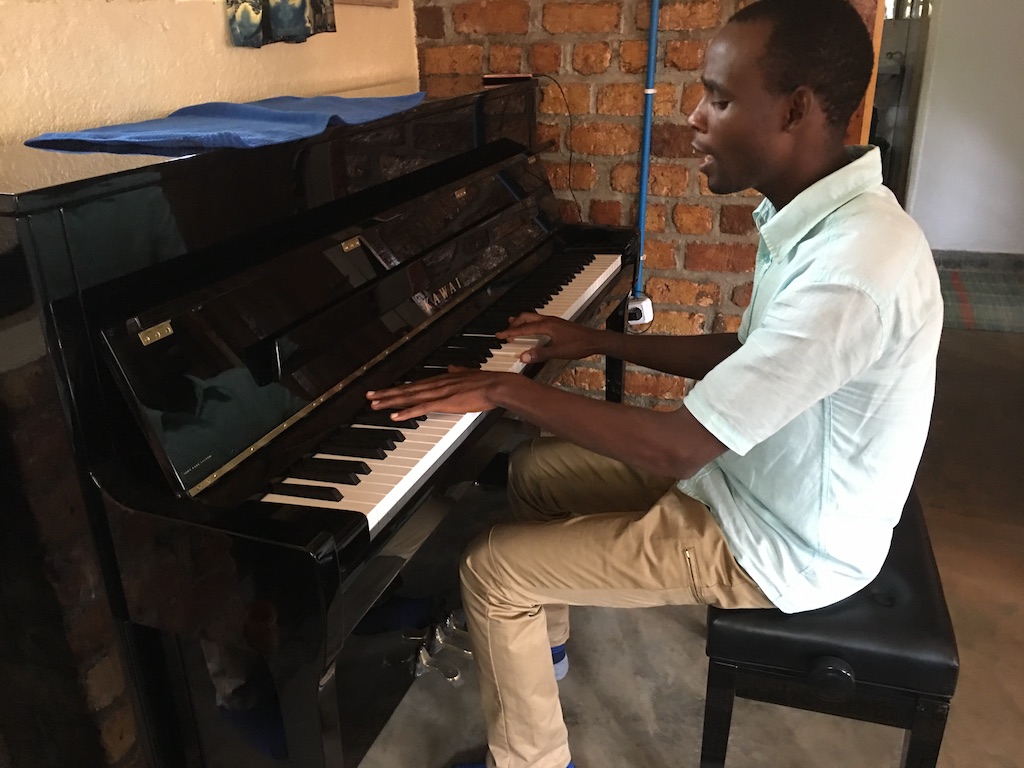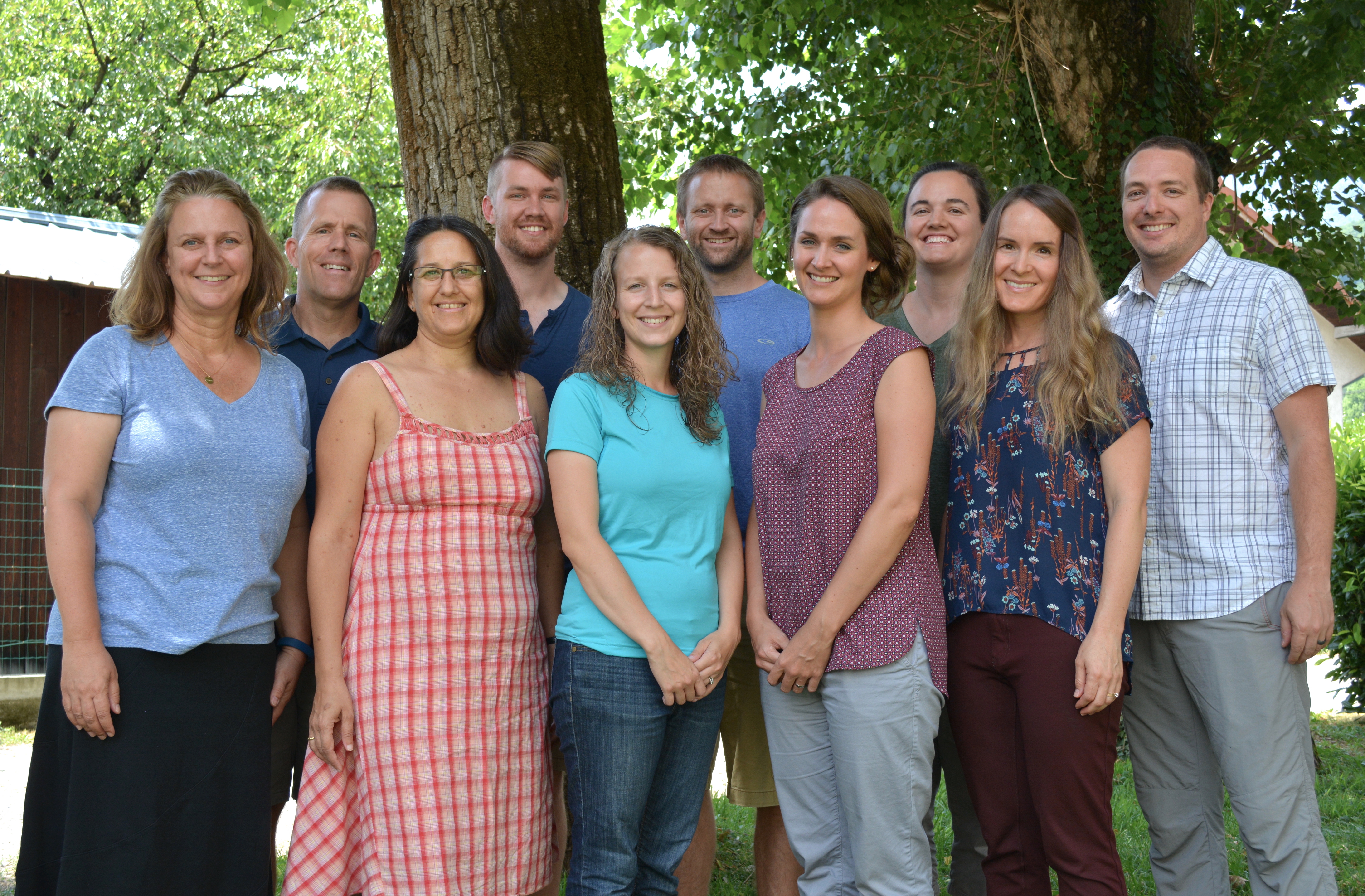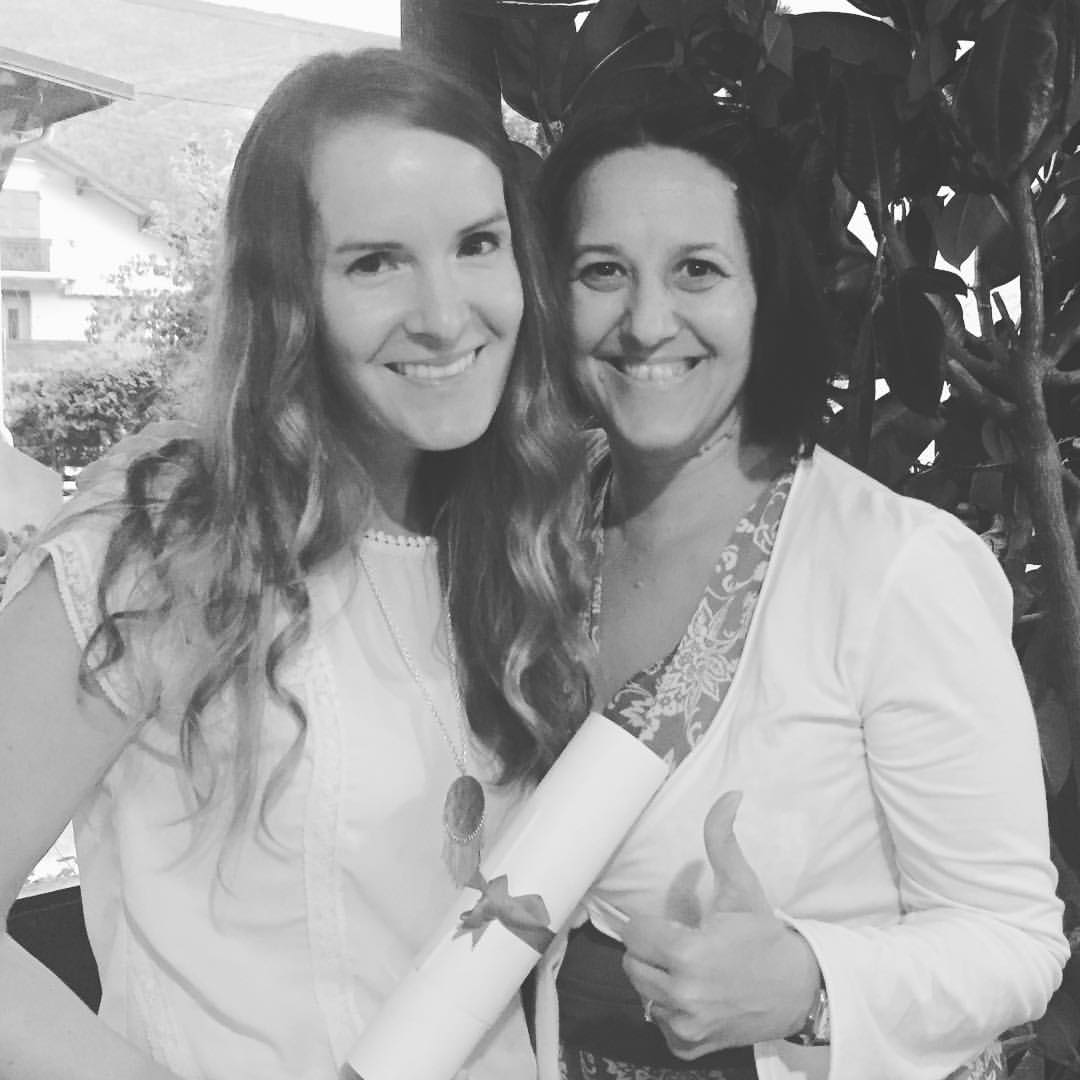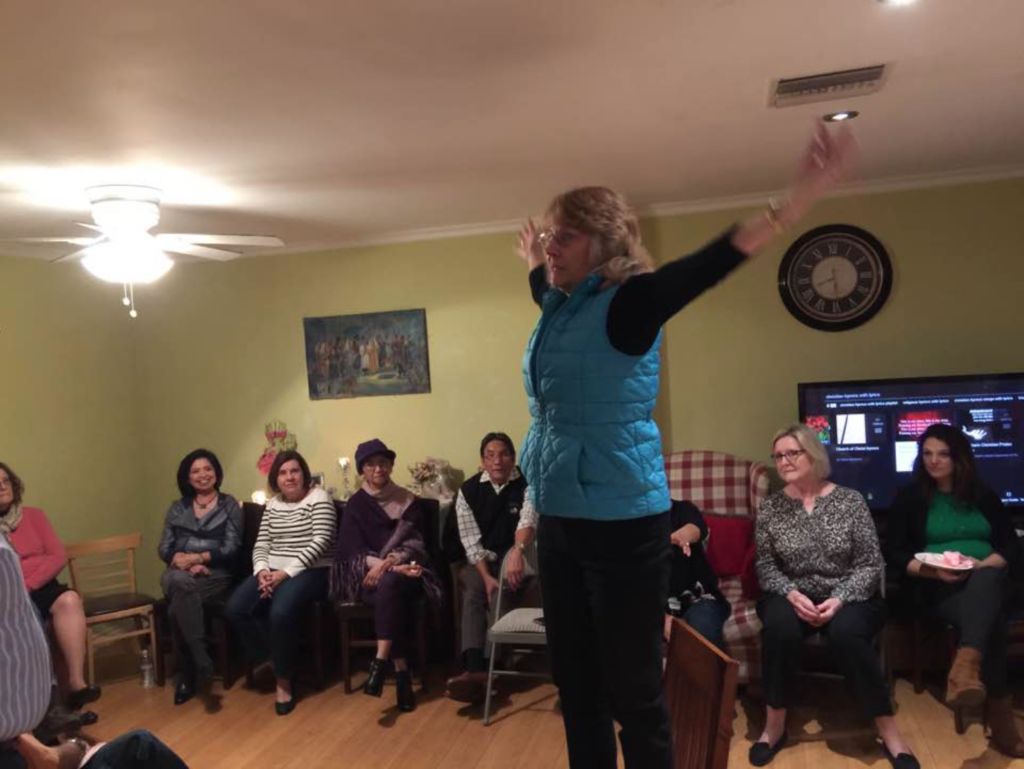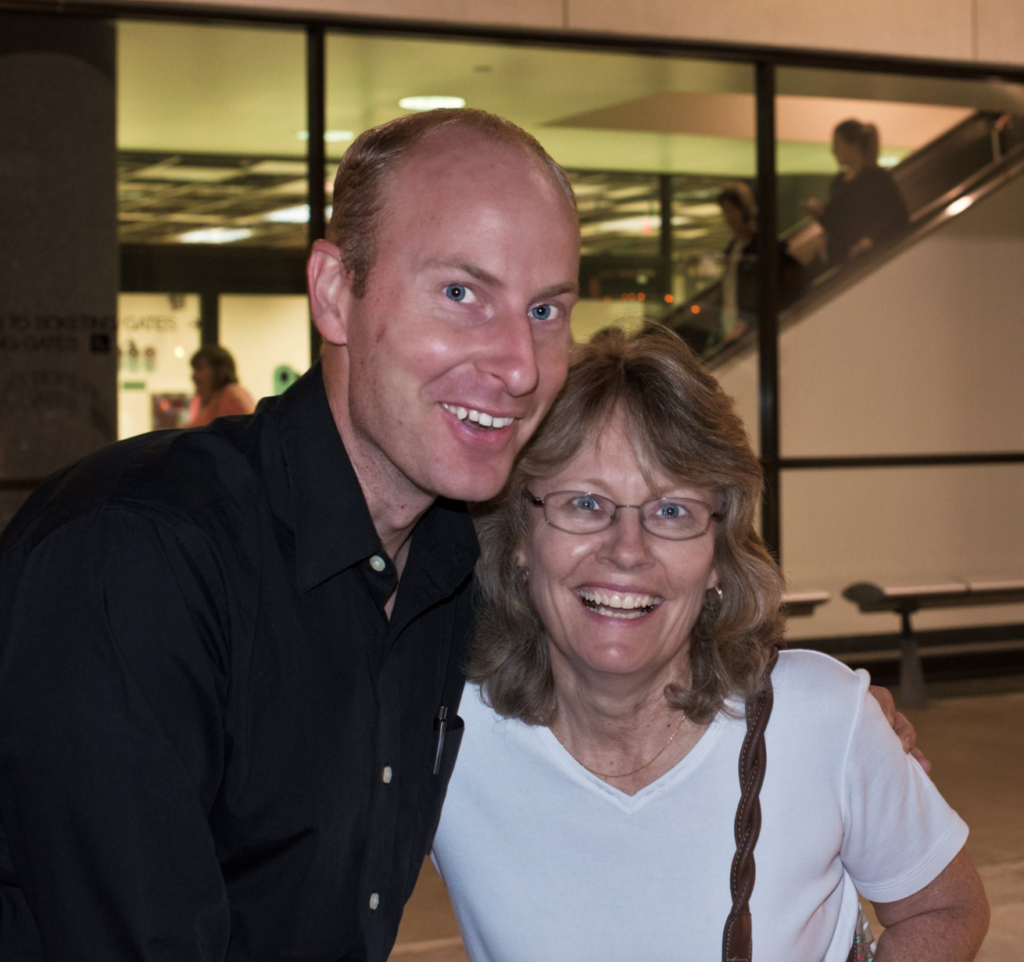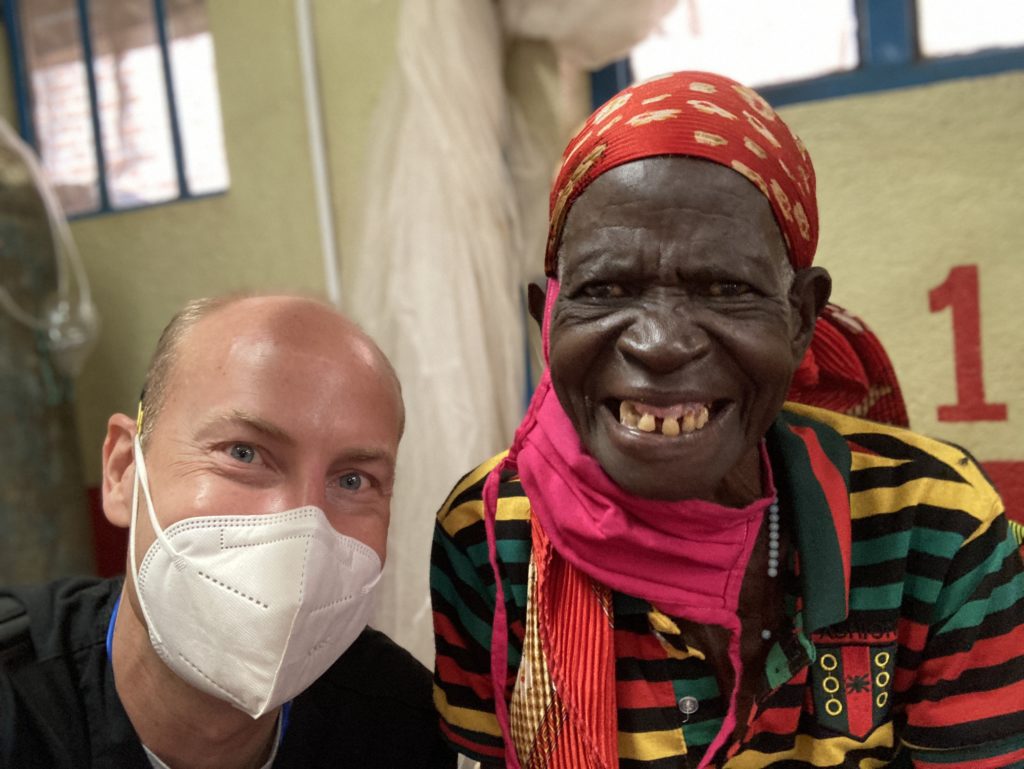
Today I had a pleasant and peculiar interaction with one of my patients, a 93 year old woman with multiple medical problems. In actual fact, she was yesterday’s patient, sent from clinic to the ER for a paracentesis (draining ascites fluid from the abdomen) due to her heart and liver failure by one of my colleagues. I performed the required puncture and evacuation of fluid (6L, to be precise) and duly discharged her from the ER before heading home, so I was a bit surprised to find her grinning happily as she greeted me from the same bed where I had left her 14 hours earlier. Medically, she had some additional complaints she wanted dealt with before she went home since she lives more than walking distance away, thus requiring a $6 taxi ride to get to the hospital.
Since I would have her around in the ER for a little while longer, and since we were not overwhelmed with patients at the time, I decided to plumb the depths of her memories for stories from the history of Burundi. After all, she was 33 when Burundi declared independence from the Belgians, with a family of her own already. What was it like to receive that news? Through the faithful interpretation of my patient med student, we asked. A rapid-fire stream of Kirundi prose followed and after what seemed like 10 paragraphs worth of monologue, she paused.
What did she say? I heard her mention Prince Rwagasore (he was one of the last crown prince’s of Burundi’s reigning monarchy and a fierce advocate for Burundian independence…his assassination galvanized the movement for independence).
Weeeeelllllll. Basically, she can’t remember that well and is getting events all mixed up.
OK. Her detail memory is faltering at 93. Not unexpected. Maybe she can tell me a proverb so I can remember her as I carry the proverb with me for the rest of my life.
[Much Kirundi passes between interpreter and patient. At times they laugh and smile broadly at me, though I cannot track their conversation at all in my limited Kirundi.]
OK. She agreed. Here is her story:
“A rabbit killed an elephant and ate some of its thigh meat, storing the rest in a secret location. An antelope came and asked the rabbit to share some of the meat, since there was so much. The rabbit agreed but told the antelope to stay put while he went up a nearby hill. The antelope agreed and the rabbit mounted the hill, found a large stone, and rolled it down, killing the antelope. The rabbit then had antelope and elephant to eat.”
I checked my understanding of the story, confirmed the herbivorous nature of all the involved creatures, and asked if my staff or students had ever heard this story before. They told me that this was a new story to them but that Burundian culture is full of such fables. I asked them for the interpretation, the lesson, and they responded that they were as baffled as I was. We then asked the sagacious story-teller to explain the parabole to which she responded:
This is a difficult one to explain. I myself have been thinking about it’s meaning for my whole life and haven’t figured it out.
I would not, however, have to wait a lifetime before I got some hints to the the lessons hidden in that story. The medical director of our hospital later explained things to me. First, the lesson of the elephant. The elephant trusted in his massive size and terrible strength to protect him, but the cunning and intelligent rabbit was able to overcome those defenses. So do not trust to brawn over and against brains. Second, the lesson of the antelope. The antelope was foolish. She should have asked how a rabbit could have captured and killed an elephant in the first place. Had she reflected before she requested, she would have contented herself with grass and kept her life.
I leave to the reader to reflect on the culpability and morality of the duplicitous and carnivorous hare. It will suffice to say only that I had not considered these lessons and would not likely have arrived at them with 53 more years of reflection. I now wonder, however, if I am the elephant and the antelope in her mind…too oblivious to recognize that I’ve been outwitted by a clever but slightly demented grandmother. We may never know.
PS:
Before I left the bedside I asked permission to tell her a story. She agreed and I proceeded to recount the story from Luke 15 about a man with two sons. (You can listen to one of my favorite sermons on this story here.) Having described a younger son who grossly offended his father and wasted his life but later repented and an older son who served externally but inwardly was quite distant from the father, I then asked if she had been forgiven of her sins. Had she been reconciled to our Heavenly Father? She replied in the affirmative and we prayed a prayer of gratitude for our loving God who pursues every errant child…even the geriatric ones.

